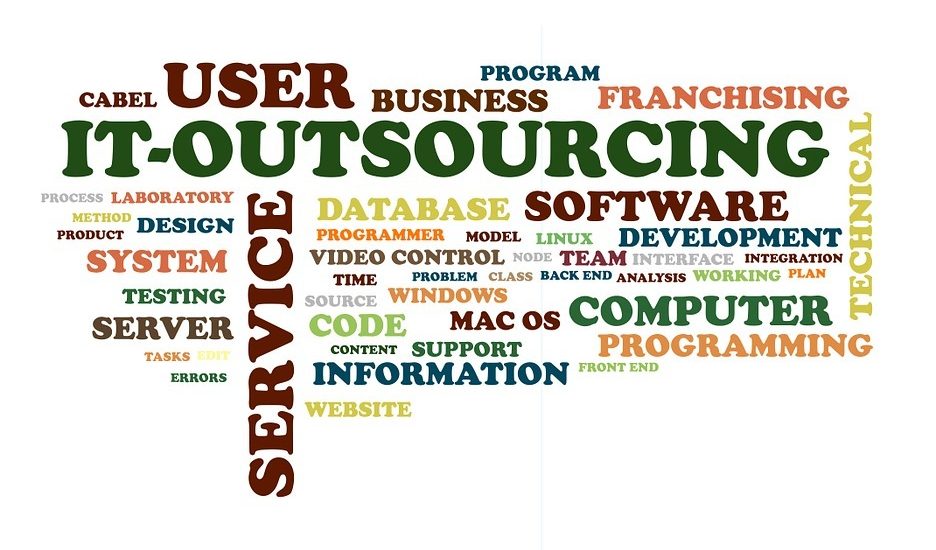Gone are the days when outsourcing was considered a viable alternative solely out of budgetary concerns. As the demand for talent and expertise increasers, the pool for suitable candidates in certain geographic areas seems to be rapidly shrinking, so companies are put in the position of needing to outsource. Since globalization has picked up steam, many big-name organizations have joined the race to find the best software developers around the world and employ outside firms to handle some of their development requirements.

This industry has earned over $60 billion in revenue in 2018 alone and has, by now, become a truly global business model. Companies are currently just as likely to outsource work to Canada, Germany, or Russia as they are to India or the Philippines. Major players such as WhatsApp, GitHub, Slack and Alibaba have learned how to successfully use the benefits of outsourcing development to reach their level of prominence.
According to the latest surveys, cost-efficiency remains a top motivator but, if done correctly, it can also bring many more advantages like reducing the time it takes to bring a new product to market, solve capability issues, and allow your internal team to focus on core business functions.
Outsourcing Gives You Access to a Wide Range of Skill Sets
Leaving aside the financial benefits of outsourcing software development, companies are also in dire need of a knowledgeable and experienced workforce. They need developers that can adapt and keep up with emerging technologies (IoT, machine learning, and AI are just a few examples). This is essential to their survival in the industry.
However, hiring exclusively from your geographical region often leads to recruitment bottlenecks and simply does not yield the results employers would hope for. Outsourcing to another software development company gives you access to more tech talent, hard to come by skillsets and additional resources such as software testers and scrum masters. Keep in mind that the cultural differences and varied background will actually help further innovation and push the final product to a level beyond what you can accomplish solely with your internal team.
You Can Speed up Development While Maintaining Flexibility
The commercial success of a tech business depends largely on how trustworthy it’s considered by both customers and shareholders. This makes launching a product on time one of the most decisive challenges.
Collaborating with third-party contractors helps you eliminate the cost of a prolonged hiring process and the risk associated with product launch delays. Even in an emergency situation with a tight deadline, outsourcing providers have the experience and setup to anticipate obstacles in the path of a fast-paced development cycle. In most cases, they’ll be willing and able to adjust working hours in order to accommodate project completion. This gives you considerable flexibility in terms of scaling your team up or down as needed.
No Recruitment Stress
Finding and hiring software engineers for a development project is oftentimes a nightmare. It’s not just sorting through the viable candidates, organizing the interview process, or joining forces with head-hunters to attract talent from competitors. You also have to make sure that what you can offer employees is appealing enough that they don’t move to other companies themselves. All this while you’re trying to launch a new product. Did we mention the challenges of integrating the new hires in your existing team?
It’s not all surprising that one of the main reasons companies choose to outsource is to avoid the stress of hiring new workers. The outsourcing companies they’ll be working with already have the necessary staff to make the project go smoothly and it reduces the paperwork or the need to buy new equipment.
Operational Costs and Compliance
As we mentioned above, once you hire new staff, they’ll need space where they can work. As the employer, it falls on you to provide then with the necessary equipment, office furniture, and supplies. That raises your operational costs. When you’re outsourcing, you only pay for the time spent working on your project, and the rates are typically lower. You also save the money you would have spent on the recruitment process.
The company you’re outsourcing to will take care of the legal paperwork, and this makes handling compliance issues much easier so you can focus on strategies to streamline your product launch.
Product Quality
As much as this notion that outsourcing reduces product quality is propagated to push employers to boost their local economies, you only have to look at examples of big companies to realize it’s not true. Having access to a more robust team allows for more thorough product testing, which will ultimately improve its stability and user experience. This translates to better product quality and protects the reputation of the company.
In the long run, this also protects the shareholder’s investment and generates more revenue. The more good quality products you can launch within the deadline, the more trust you inspire among your customer base, and the more eager they’ll be to buy your future products.
Working Remotely Has Become the Norm
Especially in the tech industry, allowing your staff to work remotely has become the standard. Just try to hire new talent and tell them this isn’t an option in your company and see what happens. Many enterprises are actually reducing their office space since so many of their employees are choosing to work from home offices. They could have over 200 developers at one time, but all of them are working through online platforms.
This means that where your software development team is physically located is becoming increasingly irrelevant. Whether you’re hiring just from your country or from all over the world, they still won’t all come to the office day by day. Plus, if so many successful companies seem to be able to run their business optimally and deliver high-quality products on time without a fixed office where their entire team gathers, why wouldn’t you be able to do the same?
Conclusion
As you’ve seen, there are many benefits to outsourcing software development, and it can be not only a financially wise choice but also a way to increase your company’s growth and success. However, the devil is in the details. There are many factors that will have a positive or negative impact on the performance of your outsourced team. There needs to be transparency and excellent communication so that this competitive alternative can deliver on its true potential.





